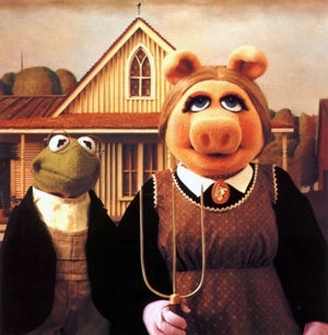
The essay by Gene Logsdon, “What Comes Around,” is the reason I wanted to do the book blog. When I first picked up the book, "The New Agrarianism," I opened right to Gene’s chapter. One word in particular jumped off the page, “Malabar.” I immediately recognized the name. As I scanned the paragraph, the context confirmed it was the same Malabar I remembered from my childhood. Malabar is a the Ohio farm of 20th century, Pulitzer Prize winning novelist, Louis Bloomfield, who wrote of pastoral life and land stewardship. I visited this idyllic farm as a child with my family. It was in the height of my horse infatuation where all I wanted to do was ride horses and have one of my own. I must have been 13 or 14 years old at the time and the place reminded me of something out of Little House on the Prairie. I decided if I ever got a horse, I would name it Malabar. Seeing that word again for the first time in over 25 years, hooked me and I began to read.
Gene’s essay is a reminder that, "what comes around, goes around." In the case of large-scale, industrial agriculture, there is a reason they call it unsustainable…because it cannot endure. As Gene describes, its cumbersome and rigid operations cannot adapt fast enough to climate change, consumer demand and economic fluctuations. It will eventually give way to smaller scale farming which can. Old, and new, farming practices are being refined which enables a farm to invest in sustainability.
Helping us to transition are the “new” agrarians…hybrid households where one spouse works a subsistence farm while the other works an urban job as the main bread winner. People are gaining a sense of place and an understanding for food sovereignty. They want to become better connected to the land by taking an active role in where their food comes from and its secured availability. These backyard farms could turn into small-scale community farms producing enough meat, dairy and vegetables for area neighbors and perhaps a region.
Parting Thought…Gene really made me sit up with this statistic. Get this…If just 40% of Americans significantly reduced their meat consumption, the factory farm system would cease. It would be put out-of-business. Out-of-business!!! We can do this people!!!

 RSS Feed
RSS Feed
